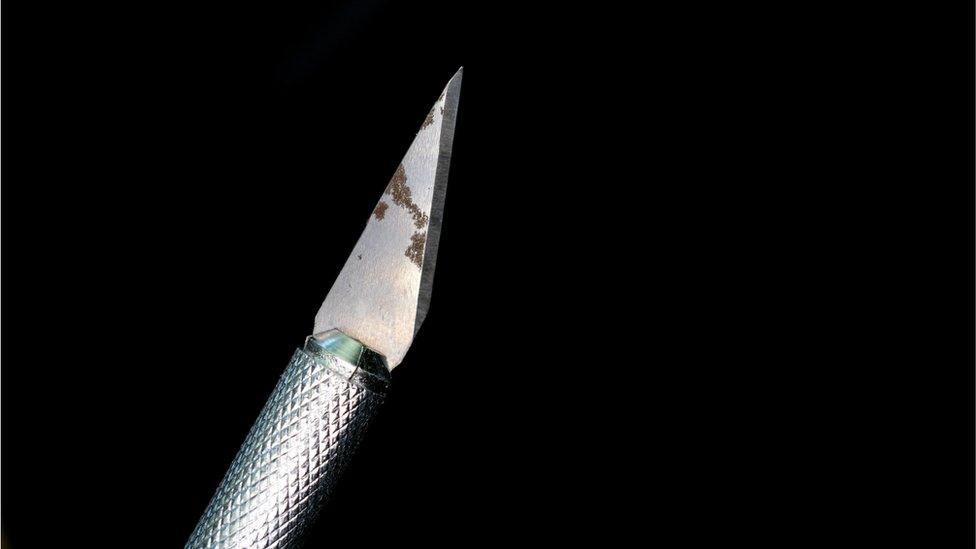FGM victims treated in Scottish city hospitals
- Published

Medics in Scotland's biggest cities have treated victims of female genital mutilation (FGM) on more than 230 occasions in the past two years.
NHS Greater Glasgow and Clyde said it had identified women with FGM on at least 138 occasions in 2017 and 2018.
In NHS Lothian, which covers Edinburgh, 93 occasions were noted.
The figures were revealed by Scottish Liberal Democrat MP Jo Swinson, who said the "barbaric" practice must be wiped out entirely.
Responses to freedom of information requests from the party that were sent to Scotland's 12 other health boards showed they had recorded very low or no cases of FGM.
East Dunbartonshire MP Ms Swinson, the deputy leader of the Liberal Democrats, said: "These figures show that NHS professionals across Scotland are recording treating women who have experienced FGM.
"It is a barbaric and traumatic practice that must be completely eradicated. Nobody should be in any doubt that it is child abuse and it is against the law."
Ms Swinson called for more training and support services to help women who are victims of FGM
Ms Swinson said the Scottish and UK governments needed to work with police and other services to protect women and girls from FGM. She also called for more training and support services to help women and girls who are victims of FGM.
'Gender-based violence'
Dr Duncan McCormick, consultant in public health medicine at NHS Lothian, said: "We are very clear in our commitment to and responsibility for identifying and treating children and women at high risk of FGM in Lothian.
"It is a form of abuse and gender-based violence that has serious short and long term physical and psychological consequences, and if any health professional has concerns they have a responsibility to share that information to safeguard the wellbeing of women and children."
An NHS Greater Glasgow and Clyde spokesman said: "We have no confirmation that FGM is being practised in Scotland, however there is intelligence that cutting does happen elsewhere in the UK.
"There is a clinic at the Princess Royal Maternity Hospital, run by the SNIPS team (Special Needs in Pregnancy Service), which sees all women who have disclosed FGM.
"For the most part, they do not need any treatment and will more than likely go on to have a normal birth.
"A small number of women are referred to the gynaecological services. Of those who are referred, some request no treatment in the antenatal period, and would rather wait for the intrapartum period, which is the recommendation from The World Health Organisation."
Minister for Older People and Equalities Christina McElvie MSP said: "Scotland already has robust laws in place to tackle this illegal practice and we are taking action to prevent and eradicate FGM and ensure that public and third sector services stand ready to support those at risk.
"We want to strengthen protections further, introduce protection orders for women and girls at risk and place guidance for professionals on a statutory footing."
- Published6 February 2019